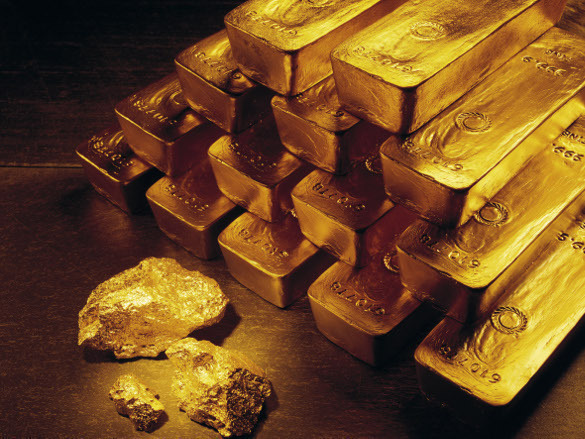Russia buys tons of gold in response to Western sanctions
Russia continues buying large quantities of gold. In July, Russia's Central Bank purchased 9.1 tons of gold. According to Deputy Foreign Minister Sergei Ryabkov, because of new US sanctions, Russia is forced to start developing a system, within which the dollar will not be needed. Pravda.Ru conducted an interview on the subject with Alexei Vyazovsky, analyst, vice-president of the Golden Mint House.

"Deputy Foreign Minister Sergei Ryabkov said that Russia, in response to new US sanctions, is stepping up efforts to reduce dependence on the US dollar. Some believe that Russia, China and India will completely abjure international payments in dollars and euros. The president of Turkey also urged other nations to give up the US dollar and buy gold and lira instead. Forbes analysts write that the Bretton Woods system of finance, which made the dollar the world's largest currency since 1944, may collapse. Are there any reasons for such fears? Do you think the Kremlin has a major geopolitical strategy at this point?"
"Russia has been buying gold on the basis of two factors. First: the Russian Central Bank does so as an insurance against the possible seizure of its gold and foreign exchange reserves abroad. Sanctions get tighter and tighter, and Russia may find self in Iran's position, when Western powers arrested Iran's reserves in treasury bonds. When you buy gold, you keep it quietly on Neglinnaya Street in Moscow, and there is no headache at all. Secondly, Russia buys gold because this is a measure of support for the gold mining industry. The Russian gold mining industry has been on the rise recently, but the state buys two-thirds of gold that Russia makes. Russian gold mining companies have a guaranteed buyer.
"As for your question about whether it is possible to refuse from settlements in dollars and replace them with gold, the answer to that is negative, unfortunately. It is impossible to move gold bars or gold coins depending on fluctuations in foreign trade balances of our partners. Returning the gold standard is impossible because the volumes of world trade are enormous, and one still needs a reserve currency. If it is not the dollar, then it will be something else. The morning sun never lasts a day, and empires tend to collapse. For example, the Russian ruble, the currency of the Russian Empire, used to be the most common currency in the world."
"Does it mean that all the talk about gold parity and the end of the domination of the US dollar is nothing but a myth?"
"This talk is a waste of breath, yes. Those myths come from the people who are poorly versed in matters of economy. The gold standard was abolished for a reason. The gold standard was unprofitable for world elites, including China and India. The gold standard limits our wealth to the physical presence of the precious metal, the quantity of which cannot increase by more than 2% of the gold that we produce a year. As for dollars, you just print them.
"Plus, there is also a problem of so-called paper gold. "Paper gold" designates futures, options and other derivatives (instruments in virtual form), which seem to be ensured with gold supplies. Usually, however, there is no such guarantee. Only 2-3% of all transactions on the London Stock Exchange or on the Chicago Stock Exchange end with physical supplies of gold. Because of this, speculators - world hedge funds, banks that want to manipulate the price of gold - have an opportunity to build their positions with long and short tooling, regardless of the actual trend in the physical metal market. As a result of this activity, gold may fall sharply, and there are many examples of such manipulations."
"Does Russia tend to leave China behind on the amount of gold in reserves?"
"Russia tends to diversify its reserves. We do not compete with anyone. There are certain norms that regulate the amount of gold that different countries are allowed to have. Germany, for example, may have 3,000 tons of gold. Russia only has 1,600 tons, and we pale in comparison.
Interviewed by Tatiana Traktina
Pravda.Ru
Read article on the Russian version of Pravda.Ru
Subscribe to Pravda.Ru Telegram channel, Facebook, RSS!




